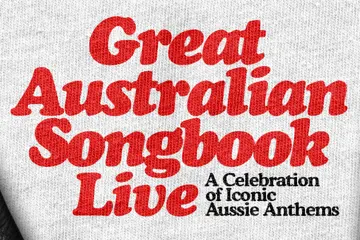 Bayside
BaysideWith almost a decade and a half together and several well-received albums to show for it, Bayside are one of punk rock's undisputed greats. With 'Cult' (released through Hopeless Records/UNFD) the current topic of conversation, we chat to frontman Anthony Raneri.
‘Cult’ is due out soon. What was the recording process like for that album?
The recording process was one of the easier ones we’ve had once we got into recording. We recorded it in about 14 days. The writing process, on the other hand, was definitely one of the more difficult ones we’ve had. We spent about two years writing this record.
Any particular reason?
More so than ever we really scrutinised ourselves. We'd never consider a song done until we’d nailed it completely. We just kept questioning, “Is this the very best line?”, “Is this the very best chord?”, “Is this the very best drum beat?”. We’ve always set out to top ourselves. We love the way Bayside sounds, we don’t think we should try and reinvent that, only get better at it. That gets harder and harder to do after 14 years, to keep all the main Bayside characteristics that we love but at the same time come up with a fresh take on it.
For sure. That leads to my next question - the cover art for ‘Cult’ is covered in little symbols that hint to earlier records. With ‘Cult’ were you trying to take a piece from earlier records and combine them, is that the symbolism there?
Definitely. Lyrically, a lot of the record is about legacy, and what we leave behind, that’s what the record is about. So that really goes along with all that - what is our legacy, you know? The record’s a summation of everything we’ve done musically up until now.
I think that lyrical theme comes through really strongly. It seems to be what I perceive to be about mortality and a sort of existential ‘what am I doing here?’ sort of thing.
I became a father while I was writing the record, so that definitely got me thinking about the world from a much bigger scope. Also, my grandfather, my step-father and my step-brother all passed away within the space of about four months, so that made me think a lot about what happens to get to a certain point. My step-father was such a good man, and no one could possibly have anything bad to say about him. My grandfather was a great man, he was a war hero, and you hear all these stories you know? I thought a lot about, how do you get to that point where at your wake nobody has anything bad to say about you, and they really mean it. I thought a lot about not only him but his generation, how I feel like most people have stories like that about their grandfather. You think about these guys who went off and jumped out of airplanes into the middle of a war, or they stormed beaches, jumped off a boat and run towards guys with guns. Is that where our generation is going? Are we becoming those kinds of men? I don’t think so.
The other thing that comes through lyrically is something that I’ve always thought to be a pretty classic Bayside element, on tracks like ‘Pigsty’ that have quite a bit of anger and vitriol to them, is that accurate?
Yeah, I think that’s always there. There’s a lot of that in my personality, I think. There’s always going to be a certain anger and telling it like it is.
One of the songs on the album I found really interesting was ‘Stuttering’. It's almost an attack on being pigeonholed in that way, right?
Sort of, yeah. At the same time it touches on the idea that maybe I might not be as pigeonholed as I think I am, like, maybe I think people expect something of me that they don’t? That was definitely the theme of it, for sure.
Something I thought was interesting was you guys recently ran a contest where you gave people the lyrics and tabs for a song and had people record their own versions. Was it interesting hearing the song re-interpreted in that way?
Oh yeah, it was so awesome. I wish we could have done that for the whole record. It was so much fun to go through all the entries and see what people came up with.
I saw on Instagram the other day that you’d found a bunch of old lyric notes and stuff like that. When you look back on the early days of Bayside and think of where you are now, what’s changed for you?
I think we’ve gotten a lot better at what we do for sure we’re writing better songs. Although, I’m not one of those people who shun their back catalogue. I think some of our old stuff is so cool, I actually get kind of anxious listening to old stuff sometimes - some stuff off Devotion and Desire, The Walking Wounded, some of our more popular songs, I listen to and I’m like, I don’t know if I can top that, you know? But, as a whole I think we’ve gotten better. We’re definitely a lot happier. Going through those old notebooks, I look back and it was all very romantic looking back on it but it wasn’t at the time, it was very difficult.
Sure, a lot of that early stuff is pretty dark.
Right, it was a dark time! We were 21 when we made Sirens and Condolences, I think 23 when we did the self-titled record, and I was in a very different place in my life, so.. I mean, that wasn’t an act at all, the songs were dark because it was a dark time. We lost our drummer around then, we were sleeping on floors, days we couldn’t afford to eat. And now I look back on it, old notebooks and fliers and I think “Oh man! Simpler times!” But it wasn’t, we’re definitely living in much simpler times now.
Yeah, it’s easy to romanticise the past like that.
For sure. It’s certainly a lot simpler these to be able to fly for a tour than have to hop on a tour bus.
You guys were last in Australia in 2011, do you have any plans to head back out?
Yeah, we definitely plan to be there this year, for sure. We’re hoping towards the end of our summer, your winter.
Read our review of 'Cult' here.
https://www.facebook.com/Bayside
















